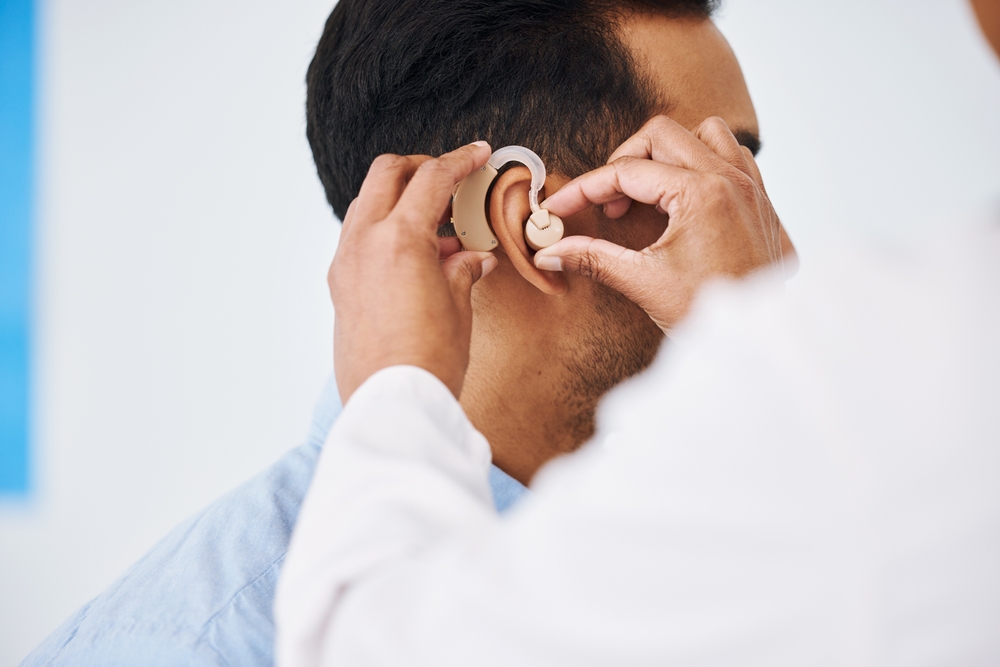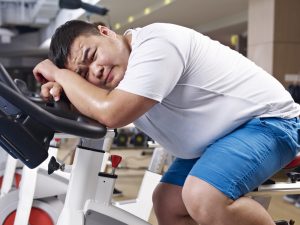A recent study in The Lancet Healthy Longevity journal presents a compelling case for hearing aid use, revealing a staggering 24% decrease in early death risk among users.
This significant finding, emerging from extensive research, positions hearing aids not just as a remedy for auditory impairments but also as a crucial factor in extending lifespan.
In an era where health and longevity are paramount, a revolutionary study brings new hope to those with hearing impairments. “What we found was that there was a 24% lower risk of mortality for people who use hearing aids,” states Dr. Janet Choi, an assistant professor of clinical otolaryngology-head and neck surgery at the University of Southern California. This pivotal research, examining over 10,000 individuals, firmly establishes the connection between regular hearing aid use and a substantially reduced risk of early death, irrespective of demographic or health variables.
A Detailed Analysis
This landmark study meticulously tracked the health outcomes of 10,000 participants, among whom 1,800 were identified with hearing loss. The data, spanning from 1999 to 2012, revealed a striking correlation between hearing aids and mortality risk.
The depth of the study is impressive, examining a diverse cohort from various backgrounds. It emphasises that the reduced mortality risk associated with hearing aid use is consistent across different ages, ethnicities, income levels, and educational backgrounds. This comprehensive approach provides a more nuanced understanding of the relationship between hearing aids and longevity.
The study’s robust methodology, involving a substantial follow-up period, adds to the credibility of its findings. By demonstrating that regular hearing aid use significantly diminishes the risk of early death, the study challenges previous assumptions about the role of auditory aids in public health and opens new avenues for preventive healthcare strategies.
The Underlying Mechanisms: Connecting Hearing Aids to Increased Longevity
While the study’s findings are groundbreaking, the mechanisms underlying this connection invite further exploration. Dr. Choi highlights that this research is an association study, which primarily identifies correlations rather than causation. Nevertheless, several hypotheses emerge.
One prevailing theory suggests that hearing aids may mitigate risks associated with social isolation, declines in physical activity, and cognitive function — all factors closely linked to hearing loss.
Additionally, auditory deprivation from untreated hearing loss could negatively impact brain structures, further contributing to health deterioration. These insights hint at a complex interplay between hearing aids and overall health, pointing to the devices’ role in not just improving hearing, but potentially safeguarding cognitive and social well-being.
Hearing Loss, Dementia, and the Role of Hearing Aids
The implications of hearing aid use extend beyond mortality risk reduction, possibly influencing dementia onset. A related study published in JAMA Otolaryngology – Head and Neck Surgery examined over 500,000 individuals, discovering that those with untreated hearing loss had a heightened risk of developing dementia.
Notably, this risk was significantly lower for those who used hearing aids. This correlation between hearing aids and a reduced dementia risk adds another layer to the importance of addressing hearing loss. While the exact nature of the relationship between hearing health and cognitive decline remains a topic of scientific debate, these findings strongly suggest that timely intervention with hearing aids could play a crucial role in cognitive health preservation.
Proactive Health Management: The Importance of Regular Hearing Checks
The accumulating evidence highlights the need for proactive health management, particularly in the context of hearing health. Regular hearing assessments are crucial, especially for those noticing changes in their hearing abilities.
Recognising hearing loss as a critical health issue necessitates a shift towards more proactive health management. Regular hearing assessments are vital, particularly for individuals noticing changes in their auditory perception.
Dr. Janet Choi advises, hearing loss “should not be counted as something related to [a] normal part of ageing and there’s nothing that they need to do about it.” This approach, supported by Dr. Thomas Holland, emphasises the importance of an integrated health strategy.
By including regular hearing checks alongside vigilant monitoring of lifestyle factors such as sleep, exercise, nutrition, and blood pressure, individuals can significantly enhance their longevity and overall well-being.
Advancements in Technology
The landscape of hearing aid technology is rapidly advancing, making these essential devices more accessible and user-friendly. Recent developments in self-fitting, over-the-counter hearing aids represent a major leap forward. Dr. Janet Choi comments on this evolution, “A lot of people are not using hearing aids because they don’t want to look older. They don’t want to be associated with disability, but it really doesn’t have to be that way.” This technological progression not only simplifies the process of improving hearing but also plays a pivotal role in breaking down the stigmas that often prevent people from seeking help, thereby opening doors to improved health and longevity for those with hearing loss.
Embracing Hearing Aids for a Healthier, Longer Life
The compelling evidence from these studies paints a clear picture: embracing hearing aids can be a life-extending choice. This is not merely about enhancing auditory capabilities; it’s about acknowledging the far-reaching impact of hearing health on overall longevity.
Dr. Choi’s research, along with related studies, serves as a clarion call for a paradigm shift in how we perceive and address hearing loss. It’s a call to action for individuals to not only be proactive in managing their hearing health, but also to embrace the advancements in hearing aid technology. As we continue to unravel the intricate connections between hearing loss, cognitive decline, and mortality, the message is unequivocal: timely intervention with hearing aids is more than a convenience—it’s a step towards a longer, healthier life.
References
- Treating hearing loss is associated with a decrease in risk of early death and dementia, studies show. CNN . https://edition.cnn.com/2024/01/03/health/hearing-aids-longevity-wellness/index.html
- Choi, J. S., Adams, M. E., Crimmins, E. M., Lin, F. R., & Ailshire, J. A. (2024, January). Association between hearing aid use and mortality in adults with hearing loss in the USA: a mortality follow-up study of a cross-sectional cohort. The Lancet Healthy Longevity, 5(1), e66–e75. https://doi.org/10.1016/s2666-7568(23)00232-5














